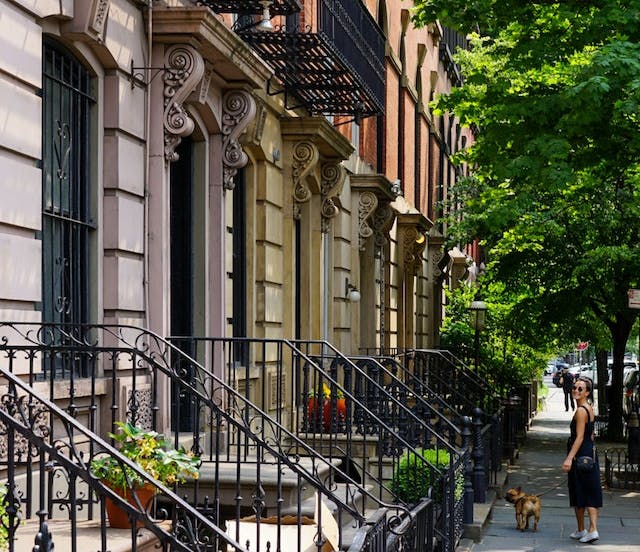The Property Tax Reform New York City Needs
New York simply has too much, not too little, subsidized housing.

Expect Governor Hochul soon to come under enormous pressure both from subsidized housing advocates and politically-wired developers to restore an expired development property tax break.
A coalition of affordable housing progressives and politically-connected developers will push for the subsidy known by its housing code number, 421a.
But this quick fix for a dated and distorted property tax regime in the nation’s largest city misses the point: the city’s overall property tax system desperately needs reform. And city spending is too high.
Development is discouraged — absent special tax breaks — because it’s taxed at the highest level in a complex system. Commercial property gets hit hard, as well. Single-family homes face a higher effective tax rate than Park Avenue condos.
The underlying problem is this: in contrast to most American cities, New York property valuations have not kept up with true market value.
As a result, low-income minority neighborhoods and much of Staten Island reflect dated values that are too high.
In a report issued just before he left office, Mayor de Blasio’s Advisory Committee on Property Tax Reform (yes, he had one), called for thoroughgoing change, including taxing all residential property — from single-family homes to apartment buildings — at the same rate, “regardless of property type.”
The city’s Independent Budget Office has estimated that such a reform would translate to a median tax reduction of $1,100 for some 500,000 property owners. It need not mean higher rates for anyone, however — if New York City were to get serious about cutting its proposed $100 billion budget.
This is a good time for tax fairness — but not tax increases. We are already seeing the burden of city and state income taxes driving the affluent to Miami.
There is no shortage of good budget targets: low health care premiums for city workers and retirees, bloated Department of Education administration, and outsized pension promises.
Instead, the city is making minor cuts to the school system, while begging Albany to restore a special tax break contingent on building more of something of which the city already has too much: subsidized housing.
Those who want to see new housing of any kind built in New York may be apt to back whatever it takes to do so. It’s a temptation to be resisted.
New York simply has too much, not too little, subsidized housing.
More than a third of New York City’s three-plus million housing units are already buffered in some way from market forces. These include 180,000 public housing apartments and nearly a million rent-regulated units.
Subsidies without time limit undermine the incentive to increase earnings or move on to a better opportunity.
Such distortions inhibit the turnover and new construction that characterize dynamic housing markets like those of Texas and Florida, to which New Yorkers are migrating,
New York’s “market” sends the message that residents should try to score a good rental deal. Housing policy favoring subsidized units discourages ownership.
Only 31 percent of city residents own their own dwelling, roughly half the nationwide rate. Ownership, of course, is a proven way to wealth, not dependency.
The expiration of 421a would best be the occasion to take stock of both the city’s overall bloated budget and opaque property tax system and to rethink New York’s love affair with subsidized “affordable” housing. If the latter were really the ticket to inexpensive housing, New York would not have to keep subsidizing more.
This should be the time not to tinker at the edges of a flawed New York property tax system but to rethink and reform it, while, at the same time, cutting a bloated city budget whose costs squeeze those who pay the bills. That’s what makes the city unaffordable in the first place.

